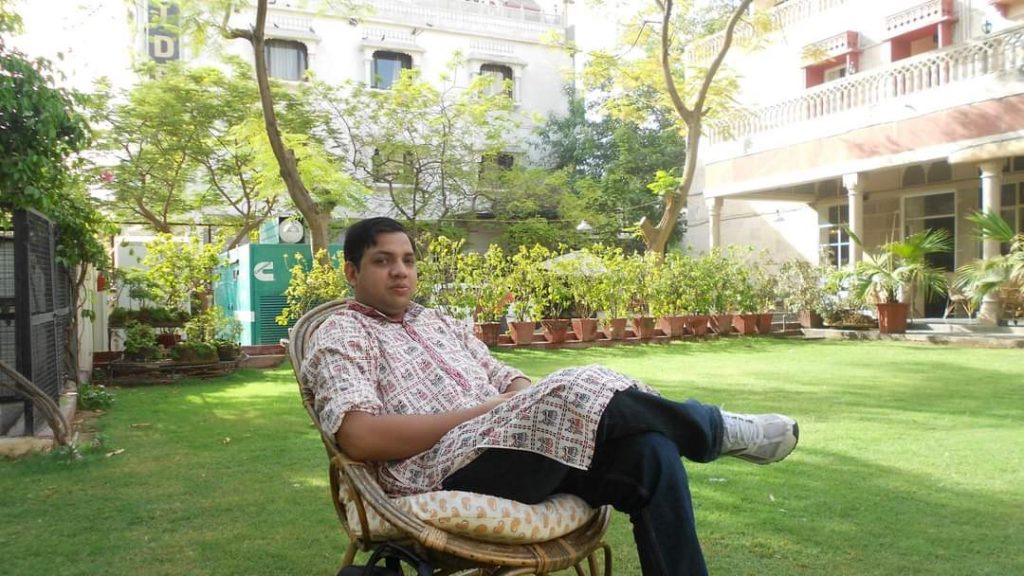Essayist Chandrasekhar Hota needs no introduction to those who take interest in Odia literature. The 35-year-old has already four books to his credit while three others are in press to be published. He commands a sizeable fan following for his attractive write-ups in various vernacular dailies. But not many people are aware that writing is not his profession but passion as he serves in police department. Chandrasekhar’s love for literature coupled with an investigative mind often leaves a lasting impression on the readers. No wonder, he has been conferred with several honours by many literary and cultural organisations across the state. But the Jewel in the Crown is his recent selection for Annual Kendra Sahitya Akademi Yuva Puraskar 2020 for his essay compilation Chetanara Anweswana. In an extensive chat with Sunday POST, Chandrasekhar who now works as a Deputy Superintendent of Police in Nabarangpur, spoke on a host of subjects.
Excerpts:
Congratulations for the bagging Kendra Sahitya AkademiYuva Puraskar. Let us begin with this award. An award evaluates the talent of a writer or it just helps him/her to do better in future. Your thoughts please.
Thank you very much for creating a space for me in Sunday POST. I believe, an award has certainly no capacity to evaluate either a litterateur or his/her works. Creative writing is a spark which flows like a fountain and meets its own destiny. Some legendary writers haven’t received any award in their life time but have been immortalised by their works and they continue to inspire generations. Do we have any award that can evaluate the works of legends like 15th Century poet and scholar Sarala Das, Atibadi Jagannath Das and Saint Bhim Bhoi? But yes, an award, in the present day, sometimes stimulates the creativity and innovativeness of a writer. It helps him/her to grow and glow. It also gives the much-needed recognition that helps a writer to compete with himself. Therefore, it is only the readers whose evaluation matters the most. They are the best judge of my works.
Youths writing in essay genre in Odisha are getting recognised only in last two years. How optimistic you are about them who write essays?
Yes, it is true that our works haven’t been recognised on too many occasions in the past. No wonder, only a few young minds are getting into the essay genre. Even as the Akademi (Kendra Sahitya Akademi) has recognised essay writing in past two years, it is something we all should be proud of. At the same time I must say, we have a great tradition of essay writing in Odisha and these back to back awards by the Akademi will definitely inspire many young writers to carry forward the legacy. Following these recognitions, I can see many students of Odia literature getting into essay and literary criticism. However, they need to study a lot to reach a certain level as the arena of this genre is quite widespread.
Being a top police officer you mostly face extreme situations and deal with the lawbreakers of the society. How could you nurture a soft emotion like literature?
Maintaining law and order is part of my profession while literature is my passion. I am happy that I have so far managed to strike a fine balance between the two. But it has not been an easy journey for me. I generally read and write from 5.00 am to 7.30 am so that my profession is not affected. Though my primary duty is to protect the life and property by enforcing laws, I always wanted to be identified as a good writer as well as a sensible police officer. In fact, I believe that all police men should possess a bit of softness in their hearts for the victims, for the women, children and senior citizens in particular.
What is your process of writing? I mean to say how do you get the elements for your works?
Whenever an idea strikes my mind, I start reading a lot about it before writing. I ponder over and think whether a new dimension can be given to that idea. The issues that are less discussed generally fascinate me. I also work on those things which I believe can educate and enlighten the readers. Then a mental structure takes shape in the mind which is later decorated with flesh and blood (words and narrative). Though I write essays, deep inside there is a poet in me also. Expectedly, the language of my essays is mostly poetic.
Tell us something about your award winning book Chetanara Anwesana.
It is my second book which has a collection of ten essays. The subjects of all the essays are different – from sorrow of silence to pleasure of pain, to the search of dignity and to deriving love. There are also essays on legends like Saint Bhima Bhoi, Mahatma Gandhi, poet Mayadhar Mansingh and author Khushwant Singh in my book. Essay is not at all a dry subject for me, moreover, it is addictive like a Mahua flower. I believe, from here my sailing begins for a search, a search without knowing the truth and ultimate destination. Hope, Chetanara Anwesana will continue to get the required patronage of the readers.
Chandrasekhar’s Fact File
Born July 1, 1985, the recipient of Akademi Yuva Puraskar worked as a Commercial Tax Officer for six years after doing his M.Phil and PhD from JNU. Besides writing thought-provoking columns in several vernacular dailies for the last 12 years, Chandrasekhar has also taught students of University of Delhi for a brief period. So far, he has been felicitated by several literary and cultural organisations with honours like Gokarnika Samman, Saraswata Samman, Mahuri Samman, Akhila Jagannath Das Samman and Krushnendu Smruti Samman.
